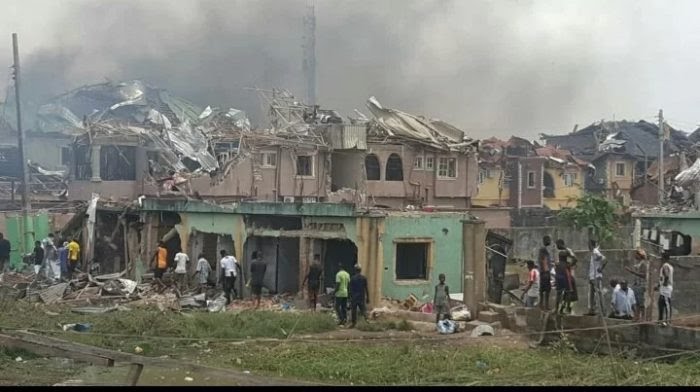
The Corporate Accountability and Public Participation Africa (CAPPA) says the recently released investigation by the BBC Africa Eye team on the Abule Ado explosion is in line with its belief that the explanation provided by the Nigerian National Petroleum Corporation (NNPC) is questionable.
In a statement signed by Philip Jakpor, its director of programmes, CAPPA said there is a need to introduce stringent regulations on how and where liquefied petroleum gas (LPG) and petroleum products are stored and conveyed throughout the country given the recent incidents that have led to the loss of lives and properties.
There have been two recent incidents involving oil and gas products; a petrol tanker explosion in Kogi that caused the death of 25 people and a gas explosion that caused wrecked havoc in Iju Ishaga, Lagos.
“When the blast in Abule Ado occurred, its vibration shook many parts of Lagos including Iba, Okokomaiko, Badagry, Agege, Egbeda and Surulere. Among the casualties were Reverend Sister Henrietta Alokha the Principal of Bethlehem High School, Abule Ado and a newly wedded couple and their unborn baby. A family of four on their way to church also died. In all, there were 23 fatalities from the incident,” the statement read.
“The NNPC claimed that the explosion was caused by a truck that hit an assemblage of gas cylinders near one of its petroleum pipelines. But the BBC Africa Eye investigation contradicted this claim and relied on forensic investigations and the analysis of specialists who insisted that the gas cylinders found at the site had nothing to do with the incident.
“The specialists whose fields cut across LPG safety, petroleum pipeline safety, and explosions analysis also examined video footage from vaporised liquid observed coming from the exact location where the NNPC high-pressure petroleum pipeline runs beneath the ground within the same vicinity. The video was recorded five minutes before the blast.”
Commenting on the organisation’s view of the incident, Akinbode Oluwafemi, CAPPA executive director, said: “The BBC report clearly aligns with our view that there was something suspiciously different about the Abule Ado explosion. The investigation also exposed the fact that the myriad of government agencies and security outfits that descended on the epicentre of the blast to investigate what happened only fed Nigerians lies”.
“BBC Africa Eye has exposed a case of criminal negligence against NNPC officials who allowed a truck to be on the pipeline possibly for several days. What happened to those billions NNPC budget for pipeline surveillance every year?
“Nigerians are entitled to the truth, they deserve to know and see justice done in cases like this. That was why we called for a forensic investigation of the blast when it happened. The BBC has graciously conducted that investigation the government refused to do. Nigerians are, however, waiting for the government to act on these startling revelations.
“Those who caused such manner of deaths and destruction as a result of their negligence must be prosecuted. Nigerians must know the owner of the truck that caused the incident and what the truck was doing atop a gas-conveying pipeline owned by the NNPC.”
Akinbode commended Babajide Sanwo-Olu, the Lagos state governor, for setting up a N2 billion relief fund for victims of the blast and urged that the fund be operated with transparency so that Nigerians can easily verify those contributing to the fund, and the beneficiaries.
The CAPPA boss said there is a need to hold the NNPC accountable for the Abule Ado incident adding that too many lives have been lost due to the carelessness of the corporation in communities where oil and gas pipelines traverse.







